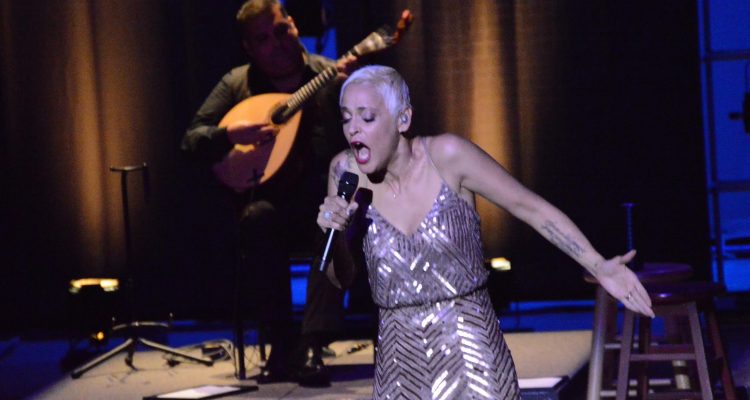The history of traditional Fado traces back to 1820s Portugal in which Portuguese musicians crafted new types of instrumentation that reflected the more intricate, somber tone of their sea shanties. Two centuries later, Fado is labeled as an ‘UNESCO Intangible Cultural Heritage’ and with Mariza, a Mozambique-based Fadista, at the helm of the movement, the genre only looks to increase in popularity.
Marisa dos Reis Nunes, who goes by the moniker of Mariza, seduced the ears of a packed house at the Regina A. Quick Center for the Arts on Oct. 23. In an enthralling two-hour set, Mariza weaved the history of Portugal within the framework of a beautifully eccentric performance that included both traditional Fado tunes and works from her latest record, “Mundo,” which was released on Sept. 9.
The evening began with a solo rendition of “Fadista Louco,” setting the tone for the first set of songs that highlighted the traditionally somber outlook of Fado. Emphasizing this further was the black outfits worn by both Mariza and her band members, guitarists José Manuel Neto and Pedro Jóia, bassist Yami and drummer Vicky Marques.
Highlighting the first set was “Primavera,” a Mariza staple that emphasizes the sustain in her vocals while intricately balancing it with the frenetic picking by Neto on the traditional Portuguese guitar. Mariza managed to also exercise the solemn tone of the latest record during the first half of her show, which harkened back to the past influences that pushed Mariza to explore the world of Fado.
The second set provided a change of scenery, exuding warm color tones and images of Lisbon, while also bringing percussionist Marques to the mix. Mariza changed into a glimmering golden dress that worked well against the warm lighting and images, and kicked off a second half filled with whimsical, upbeat Fado standards. Most notably, Mariza was able to include songs that contained lyrics in Cape Verdean, Portuguese and Spanish, which is almost unheard of by most modern lyricists and singers.
The 12-song set seeped into a greatest hits montage that included the likes of “Chuva” and “Medo,” which had the audience fully immersed in the flurry of notes that whispered and swept throughout the theater. Mariza constantly made note of the active participation of the audience, even including an extended version of her arguably biggest hit, “Rosa Branca,” which allowed the audience to progressively shout the chorus along with the Fadista.
As the set came to a close, the audience erupted into a roar as the Fadista left the stage, but surely enough, Mariza and her backing band came out to answer the call for an encore. Mariza busted out a rendition of “Ó Gente da Minha Terra,” and followed with an intimate version of a traditional Fado tune, featuring her three guitarists centered around one chair in center stage.
In terms of traditional songstresses, Mariza proves time and time again the sheer efficacy that traditional Fado can provide in a world saturated with overproduced top 40 pop music.


Leave a Reply